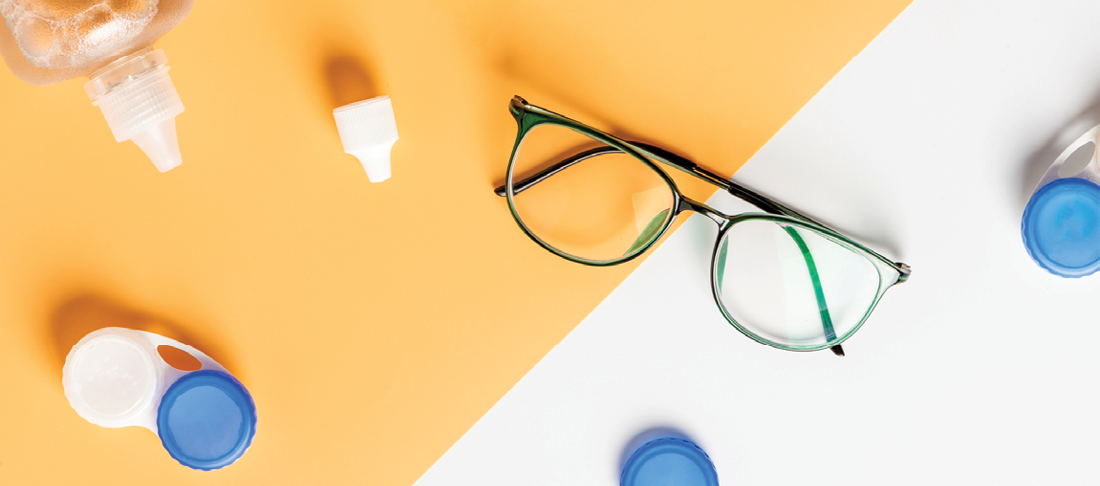It May Help Stop Spreading the Virus
Work from home situations have always enjoyed a looser dress code. Hello, sweatpants! And in the days of COVID-19, more and more Americans working remotely, educating their children at their kitchen tables and practicing social distancing by staying home. So it makes sense to dress comfortably.
But beyond comfort, there is another good reason to consider shelving your contact lenses for now and pulling out your trusty glasses. It may just help stop the spread of the pandemic virus that causes COVID-19.
Did you know studies show we touch our faces upwards of 23 times in an hour? But with all the awareness around containing the spread of COVID-19, it’s important to STOP! Specifically, the CDC is recommending “avoid touching your eyes, nose, and mouth with unwashed hands.”
With that in mind, wearing glasses can help you stop touching your face, according to the American Academy of Ophthalmology, a key way any virus is spread, including the novel coronavirus currently spreading across the world. Our own Dr. Eva Liang explains it this way.
If you wear contact lenses, you not only touch your eyes to put in and remove your lenses twice or more a day, you also touch your eyes and face much more than people who don’t wear contacts.
Additionally, your glasses may also provide slightly more protection from virus particles that might be floating in the air. Although most experts agree, it’s more likely that you’d be infected via your mouth and nose than your eye. There is no current evidence that supports transmission of the virus through the eye.
But limiting eye exposure can still help. Here’s why:
- When a sick person coughs or talks, virus particles can spray from their mouth or nose into another person’s face. You’re most likely to inhale these droplets through your mouth or nose, but they can also enter through your eyes.
- You can also become infected by touching something that has the virus on it — like a table or doorknob — and then touching your eyes.
Pink Eye Concerns
There is some concern that the coronavirus could cause conjunctivitis, a highly contagious condition better known as pink eye. Conjunctivitis is an inflammation of the thin, transparent layer of tissue, called conjunctiva, that covers the white part of the eye and the inside of the eyelid.
Symptoms of pink eye include excessive tearing, itching or burning, blurred vision, red or “pink” in the whites of the eye, pus, mucus and a yellow discharge that crusts over the eyelashes.
Reports out of China and from other parts of the world are showing that about 1% to 3% of people with COVID-19 also had conjunctivitis. A newly released study by the American Academy of Ophthalmology found no evidence that people with COVID-19 were shedding the virus from their tears, but no one in the study had conjunctivitis. So it’s still unknown if the novel coronavirus can be spread by tears.
No Cause for Panic
Dr. Liang, along with most eye experts, wants to be sure patients know that eye redness and irritation should not immediately be considered a sign of COVID-19. The novel coronavirus is just one of many viruses that can cause conjunctivitis; in fact, it’s so common that it came as no surprise to scientists that this newly discovered COVID-19 virus would do the same.
There are many viruses and bacteria responsible for the common cold that can cause pink eye, as well as some fungi and parasites. Smoke or dust, shampoos, pool chlorine and even eye drops can be to blame. Additionally, there are many benign causes of pink eye: seasonal allergies; a sty, which is a clogged eye duct; a chalazion, which is an inflammation of the gland along the eyelid; and/or blepharitis, another inflammation or infection of the skin along the eyelid.
None of those conditions are contagious. But to be safe, official recommendations are in place.
At Center For Sight, your and your family’s health and safety are important to us. Please reach out with any eye concerns. We’re here for you.



